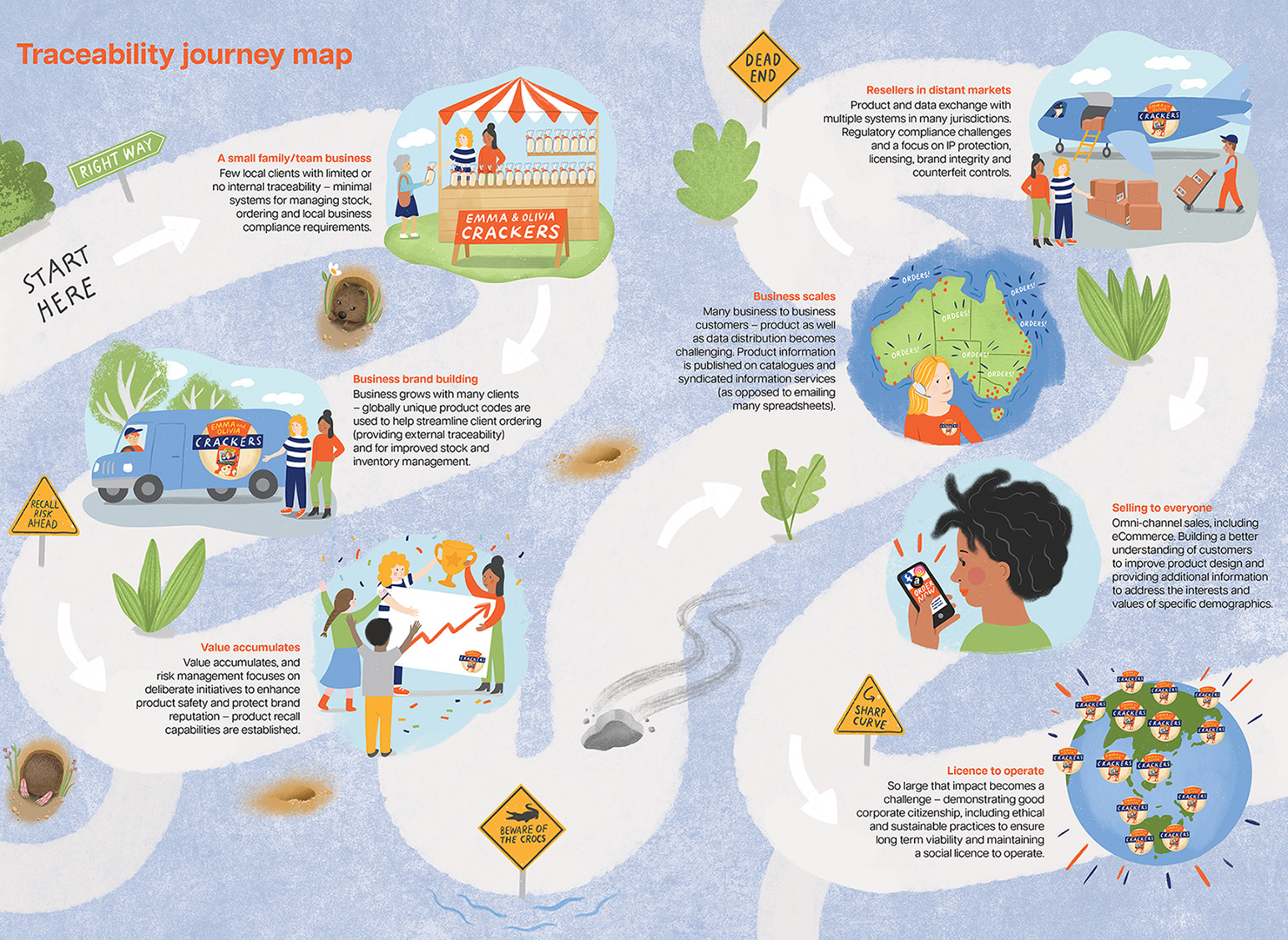In December 2021, the Food Industry Development branch of CRC partner the WA Government Department of Primary Industry and Regional Development (WA DPIRD) launched GS1 Australia report Traceability Learning Journeys: Lessons in Implementation and Impact from Food Manufacturers in Western Australia.
The report reveals the findings of a DPIRD study investigating the key business drivers of traceability capability. DPIRD partnered with GS1 Australia to conduct surveys and interviews with 20 food and beverage manufacturers across Western Australia. then took a deep dive into how five of these firms incorporated new traceability technology and systems into their operations.
Case studies of five selected firms showed considerable variability, highlighting the fact that businesses face differing challenges at different stages of growth. Pathways and lessons learned when implementing new technology varied depending on business scale and type as well as on owners’ motivation. That said, certain issues and lessons were common to all who took the journey.
Traceability Learning Journeys is the outcome of these conversations. It details key lessons learned and positive impacts from these firms’ traceability journeys – including improved return on investment.
Why it matters
Ensuring food products can be traced right along the supply chain from producer to end consumer is of increasing importance to industry, government and consumers themselves.
Often, however, food and beverage firms take a reactive, piecemeal approach to implementing new traceability technology and systems. Many also lack information about how improving traceability across their operations can improve their bottom lines.
‘Despite significant investment in traceability technology and solutions, there are considerable knowledge gaps,’ WA DPIRD contends. ‘Notably, there is a lack of information about the financial and economic benefits of enhanced supply chain traceability.’
Read the report
Further information
For more information about the report, contact Nicki Hall at WA DPIRD on Nicki.Hall@dpird.wa.gov.au.
Lead image: The Traceability Journeys map uses Emma & Oliva’s experience growing their crackers business to demonstrate the different stages and needs for traceability systems. Credit: GS1/WA DPIRD


